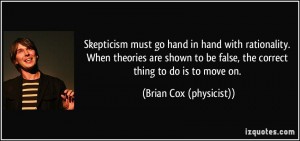
Some feminists within the ‘atheist community’ continue to claim that their particular approaches cohere with skepticism, but words betray their claims.
Julia Burke, writing for the organization Secular Woman, dubs 2013 as The Year of Speaking Out, a “remarkable year saw an unprecedented level of public conversation about harassment, inclusion, intersectionality, and what it means to be a feminist.”
2013 was indeed a year which saw a high level of public conversation about feminism. One such conversation, for instance, saw Secular Woman saying, “Feminism isn’t up for debate in our organization.” We saw feminist Amanda Marcotte refusing to honor her own debate challenge and suggesting that websites like Storify ban users who are critical of feminists.
We saw Donglegate. We saw a feminist shame a man for having sex while denying agency of women and bringing up the fact that she was his friend through times of suicidal thoughts and mental illness in what almost certainly was an attempt to make him feel guilty [as if he somehow ‘owes’ her something for a non-negotiable act of kindness expected from any true friend]. We saw feminists who advocate for strict following of conference policies violating conference policies and complaining while seeming to not even care about reading the policies. We saw ‘Big Red.’
Many, including myself, in responses to these public conversations, had rid themselves of the feminist label because many who claim to represent it have polarized people who have a more rational approach to gender equality and humanism. The pie-in-the-sky ‘movement for equal rights of women,’ at least approached by many in the ‘online crowd,’ has been anything but.
Burke, in her piece, talks about what she considers harassment and some questions and/or conversations surrounding harassment. Various questions Burke proposes are antithetical to a skeptical approach, privileging an ideology and pre-established beliefs, especially under the umbrella of “trust, but verify.”
If someone claims to be a victim of [sexual] harassment, a proper investigation — cohering with a skeptical approach — which is disinterested (that is, looking to arrive at truth rather than arrive at a particular pre-established preferred conclusion) ought to take place.
Burke, though, in her piece, proposes the following question which suggests anything but a skeptical approach: “At what point is evidence adequate, and at what point does the search for adequate evidence protect, and harbor, misogyny, and how do we change that?”

If [sexual] harassment has occurred, a disinterested search for evidence should lead to the truth. Wondering whether a search for evidence ‘protects’ or ‘harbors’ misogyny suggests anything but a disinterested perspective and instead indicates that an inquirer is not interested in truth because other concerns are more important, interfering with concern for truth.
If you are interested in whether an incident has occurred (and think it has), you should welcome investigations rather than questioning whether they should take place to begin with. If collected evidence shows that harassment has not occurred (or if there is no evidence supporting a claim), an honest inquirer ought to simply accept the results of a fair investigation [rather than claiming after-the-fact or before an investigation occurred that the investigation protected or harbored misogyny]. After all, a proper investigation would confirm a pre-established belief that harassment has occurred.
The feminist, suggesting that a search for evidence may protect or harbor misogyny, is not interested in truth, but rather is really interested in protecting or harboring a cherished belief – behaving very much unlike a skeptic.
A skeptic starts with the question, “Is there good reason to believe a claim?” A skeptic does not say, “Should we investigate this matter at all if the results might not show what we believe is true?”
A skeptic says, “I am willing to change any and all of my beliefs given sufficient evidence, argument, and reason.” A skeptic does not say, “A search for truth shouldn’t happen because it might lead to results I find to be unfortunate.”
Feminists should do themselves a favor and perhaps instead talk about why they believe a search for evidence may be compromised by particular beliefs rather than suggesting that a search for evidence would harbor or protect misogyny.
Feminists ought to also stop pairing sexual harassment with misogyny because cases exist in which men harass men, women harass women, and women harass men. Pairing sexual harassment with misogyny subtlety, as one may say, ‘render people invisible through language.’ Additionally, sexual harassment — regardless of the alleged perpetrator’s identity — might have nothing whatsoever to do with misogyny.
As always, feel free to leave your comments below.